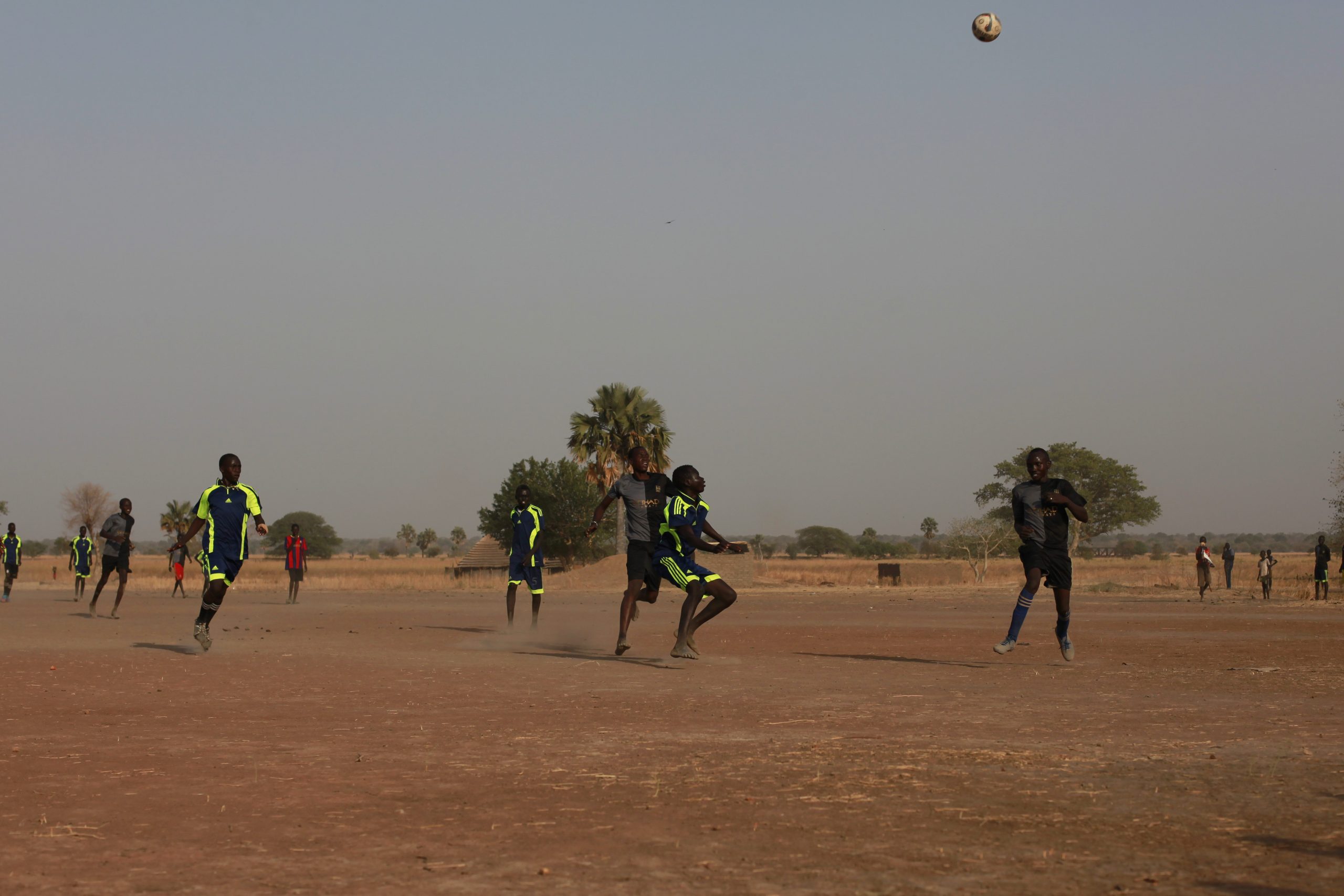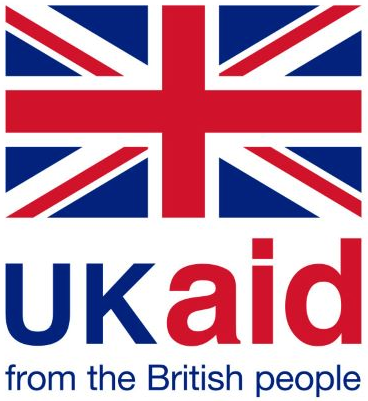RVI is working in partnership with the Catholic University of South Sudan with a team of young researchers to study the dynamics around youth, violence and livelihoods in South Sudan. The project aims to understand decision-making among young people, their livelihood options and sources of trust, association, and influence. The study focuses on rural and urban youth in and around the towns of Bor, Yirol, Torit, Leer, Mayendit and Juba. Whilst some research has been delayed due to the outbreak of COVID-19, in April 2020, two members of the research team conducted life history interviews with young people from Hai Referendum in Juba. The project is funded through the East Africa Research Fund with UK Aid from the UK government.

This blog was written by Elizabeth Nyibol (Catholic University of South Sudan) and Joseph Diing (RVI) and presents the story of Thiek, originally the Aweil area of Northern Bahr el-Ghazal, who now lives in Juba. When Thiek moved to Aweil town from his home village of Majak Kaar in 2007, his father gave him some money to buy shoes for school. Thiek bought cigarettes and airtime instead, which he sold in the market as a regular business to support his studies. Now one of the domino-playing casual workers and hawkers of Juba city, Thiek’s experience stringing economic life and learning together is a way to understand young men’s livelihoods in the time of coronavirus.
Seeking education
Thiek’s early years were the same as many other children growing up in rural South Sudan. He went to school under a tree, ate in friends’ homes, looked after livestock and flirted with girls. One of Thiek’s friends was sent to study in town and, during his holidays back in the village, Thiek learnt about town life and education. They compared school notes to cross-check the different standards of teaching they were receiving. This was the early 2010s, when education in the rural areas was collapsing without government funds. Many teachers left schools to work for NGOs, the military or crossed the border into Darfur to labour on commercial farms there, with some traveling as far as Khartoum.
Thiek’s father resisted his plans to study in Aweil town, but gave in when local teachers left the village school. In 2016, he brought Thiek to his cousin’s house and registered him at a cheap government secondary school. Life was tough: Thiek ate once a day, if that, after a long day in class. Building a network of friends in the town—including one who runs a stall for charging mobile phones—they showed him how to earn a living while studying. His friend with the phone stall let him use his kiosk to sell cigarettes and airtime. Thiek invested his 1,000 South Sudanese Pounds (SSP) for school shoes into his new after-school business and, after a month, used profits to buy shoes.
By 2018, when Thiek sat his high school exams, most of his friends had dropped out because of the sustained economic crisis. Businesses collapsed, part-time jobs fell through and market price rises limited what families could send from the village. Most of Thiek’s friends headed to Khartoum, and some on to Cairo—many others joined the military. They built Facebook and WhatsApp groups to stay in touch. Thiek bought a smartphone in 2017, which marked the beginning of his plans to leave Aweil.
Leaving for Juba
Through Facebook, Thiek started researching opportunities for studying and working elsewhere. His friends in Khartoum were working but could not get back into school there. Thiek’s elder brother had returned from the city with nothing. Thiek said: ‘when they returned, they look almost the same as they left.’ Thiek turned to his friends in Juba. One said he would help find him accommodation—the biggest barrier to moving there—and get him set up in hawking. He knew that ‘Juba needs hard work,’ so got a job in Aweil town with a motorcycle spare parts trader to build up his savings.
Thiek paid nearly the whole of his savings (5,000 SSP) for a lift on a truck to Juba. He didn’t tell his father that he was leaving as he had already said not to travel by road because of the risks involved. Thiek underestimated how bad it would be. His group was ambushed three times by armed men, robbed repeatedly, and were left terrified by the time they arrived. He arrived in Juba with nothing and his friend picked him up.
Thiek’s friend allowed him to stay with him in the compound of an uncle, who was clearly unimpressed at having yet another person living in the house. He also leant Thiek 10,000 SSP interest-free and helped him buy some underwear and vests wholesale to start hawking in residential areas together—thereby teaching Thiek about the city. After a few days, Thiek managed to move out to manyata hoot-diet (bird houses in Dinka)—tiny huts of iron sheets, rented out cheaply in packed compounds that cover Hai Jebel and Referendum in Juba—to get away from the uncomfortable family home. After a month, he paid his friend back on his investment and bought a new smartphone. Thiek tried to convince friends in Khartoum that there were better chances for school and survival in Juba’s markets. He had been accepted into university in Wau in 2019, and ‘if I find enough money, I’m determined to go back’, he explained.
Coronavirus in the city
At first, Thiek didn’t think Coronavirus would affect him. But, when the borders were closed in March this year, goods for resale became harder to come by. This disrupted Thiek’s income and, as a consequence, his plans. He also became afraid of catching the virus. Thiek started checking updates on websites and on the radio, and looked up the WHO guidelines on prevention. He quickly became fed up with the misinformation he found. In particular, there was a story about a prophet in Sennar—a young child—who said that drinking tea without sugar before dawn would protect you. He heard this story from friends in the north and from a call with his mother in the village. During the first week of lockdown some of his friends got up before 4am to drink tea without sugar in.
Thiek started putting safety measures in place. The first thing he did was talk to the others in his compound and organize a collective fund to buy a water can and soap to put at the gate, so that visitors can wash their hands before entering. He asked those with children to keep them at home. Thiek then called his mother in the village and explained the key measures to her, asking her to limit her walks to churches and weddings. This is difficult for the elderly, particularly waving from a distance or avoiding handshakes.
After the lockdown stretched into the second week, Thiek and two trader friends went to Konyo Konyo market again to see whether they could get any goods. They found that the stores were still locked and there was no way that they could get supplies. Thiek stopped eating in restaurants and taking showers at the wash-points in town to save money. He said: ‘We decided as a group and contributed money together. We bought food and cooking utensils and began to cook our own food inside the compound.’
The situation is already deeply frustrating for young people in Juba, many of whom balance market trading and other bits of work with studying. Thiek worries that the economic effects of COVID-19 may push more young men into the military. ‘We are now deep in crises; it will take a long time to address them.’
Conclusion
The last eight years of economic changes in South Sudan—the rise in inflation, lack of jobs for young men and the collapse of education in rural areas—have pushed many young people to towns or to commercial farms across the borders in Sudan. This includes young women, whose hunt for paid labour often exposes them to exploitation, sexual harassment and abuse. The choices of these young men and women are shaped by their access to information and social networks, as well as the economic terrain. Coronavirus enters this terrain, rather than changing it. Thiek, like many other young migrant men and women, is juggling pressures and priorities including the risk and varied impacts of the virus.
This blog is an output from a project funded by the UK Department for International Development (DFID) through the Research for Evidence Division (RED) for the benefit of developing countries. However, the views expressed and information contained in it is not necessarily those of, or endorsed by DFID, which can accept no responsibility for such views or information or for any reliance placed on them.





